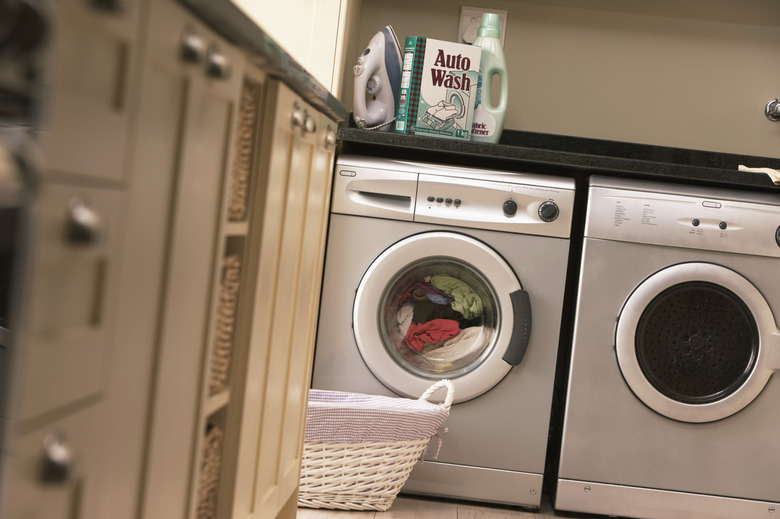What Causes A Basket Spider To Break On A Front-Load Washer?
Front-load washing machines have become popular appliances due to their energy efficiency and their water efficiency. The horizontal position of the washer's drum requires only a third of the water needed for top loaders, and the spin cycle extracts more water from the machine, which results in quicker drying times. However, the drum spider — or basket spider — utilized in front-loading washing machines is susceptible to corrosion and breakage.
Corrosion
Corrosion
The basket spider provides support and stabilization for the washing machine's basket. It is located at the back of the basket and has three arms, which are attached to the basket by three bolts. Although the machine's basket is made of stainless steel, the spider is not. It is composed of an inexpensive, white, aluminum metal, also known as "pot metal," which is subject to corrosion. Eventually, the aluminum or pot metal deteriorates to the point where the spider breaks during a wash cycle – accompanied by very loud noises. According to one repairman, the sound mimics that of a car collision. The amount of corrosion behind the basket can be enough to fill a pint container.
Life Expectancy
Life Expectancy
The spider basket in a front-load washing machine does not have a long life expectancy. According to the appliance repair website Suds and Service, pot metal basket spiders in small front loaders, those with a capacity of 16 lbs. to 17 lbs., have a life span of only five to six years. These short-lived basket spiders are found on several washing machine brands, including Kenmore, Frigidaire, Electrolux and White-Westinghouse, as well as Gibson, Tappan, Wascomat and some GE washers.
Replacement
Replacement
Replacing a front-loading washing machine's broken basket spider is expensive. Although the spider is removable from the basket, washing machine manufacturers do not sell the spider as a standalone part, so you must purchase an entire basket. At the time of publication, the price of a basket and spider ranges from $259 to $470 depending on the manufacturer. When combined with labor costs, replacing the basket and spider can cost more than $600.
Prevention
Prevention
"Appliance Parts Pros" advises that most basket spider corrosion and subsequent breakage is a result of using too much detergent combined with hard water. The site recommends using no more than a quarter cup of high-efficiency detergent and using water with a softness level of no more than two grains. Following these recommendations should result in a basket spider life expectancy of 12 to 15 years.
